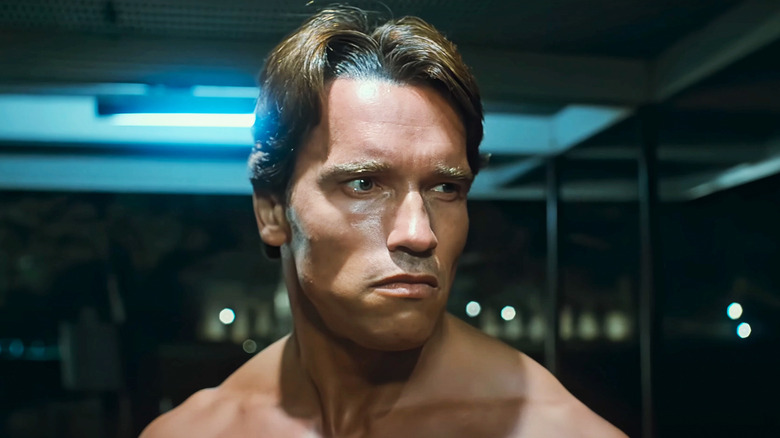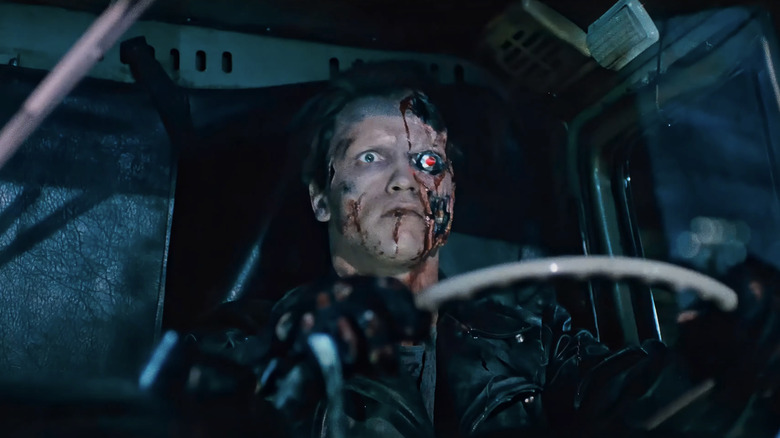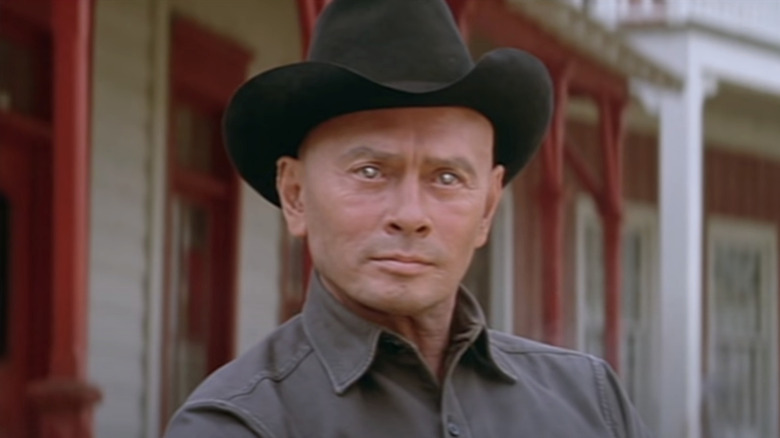“The Terminator” is one of those unimpeachable sci-fi classics that feels fundamental to the evolution of the genre. As such, it’s strange to think of director James Cameron having any specific inspiration, especially considering the impetus for the 1984 movie was as personal as Cameron having a nightmare which included that now famous image of a chrome Terminator exoskeleton emerging from a fire.
Beyond that, “The Terminator” has taken on a sort of mythical aura in the history of cinema. Like Paul McCartney having to verify “Yesterday” didn’t already exist before he could accept that he’d written it, the idea for “The Terminator” seems like such a foundational sci-fi concept that it’s odd to think there was a time when it didn’t exist in the public consciousness. A killer robot is sent back in time to prevent a future war — like all good ideas it’s simple without being simplistic and made for one of the great films of the 20th century. Heck, that great arbiter of taste in cinema, Rotten Tomatoes, still counts it as one of the only two “perfect” sci-fi movies ever made.
So, imagining Cameron comparing his strikingly original vision to other sources does, in some way, seem incongruous. But at that point in his career, the director was just a guy trying to make a hit movie so that he could continue directing. As Cameron told The Ringer during an appearance alongside producer Gale Anne Hurd, “Our entire goal set consisted of getting a foot in the door [and] making a film that allowed us to continue to be filmmakers.” Even while his main ambition was to ensure his career longevity, Cameron clearly still wanted to leave his mark on the sci-fi genre and had a specific film in mind as his yardstick for success.
James Cameron surpassed his sci-fi standard with The Terminator
If James Cameron was simply trying to make a movie that allowed him to “continue to be a filmmaker,” he certainly went above and beyond with “The Terminator.” Even the director himself knew he had something special after the first day of shooting. He told The Ringer about filming the scene where Arnold Schwarzenegger’s cyborg is chasing Sarah Connor (Linda Hamilton) and Kyle Reese (Michael Biehn) in a truck. This was the scene where extensive makeup was used to make it look as though the T-800’s exoskeleton was showing through the torn flesh on Arnie’s face — an image that struck Cameron when watching the dailies. “It was this long-lens hood-mount closeup,” he explained, “And man, [Arnold] was terrifying. You didn’t think of Conan [The Barbarian, Arnie’s previous role] for a split-second. He was a brand new guy, something you’d never seen before, something I’d never seen before.”
It was after this that the director claimed to have accomplished his personal goal for the film. Specifically, Cameron wanted Schwarzenegger’s Terminator to be a better on-screen depiction of a humanoid killer robot than Yul Brynner’s Gunslinger in 1973’s “Westworld.” He said, “My great aspiration was to do better than Yul Brynner in ‘Westworld,’ and we overshot that mark by miles with Arnold.”
The original plan for The Terminator was quite different
Russian-American actor Yul Brynner transitioned from stage performing to Hollywood with critically acclaimed performances in such films as “The King and I” and “Anastasia.” He later transitioned to Westerns with 1960’s “The Magnificent Seven,” proving himself an even more versatile performer than fans realized. But it wasn’t until 1973’s “Westworld” that he delivered what would be his defining Western performance, playing an android gunslinger who defies his programming and begins hunting guests at the futuristic theme park in which he operates.
Fans might not have made the connection between Brynner’s Gunslinger and Arnold Schwarzenegger’s hulking cyborg, but the parallels are obvious in retrospect. Both are humanoid robots hunting human beings and for Cameron, Brynner had clearly set a standard that he hoped to at least match.
Interestingly enough, the original plan for “The Terminator” would have seen a much smaller actor in the lead role, as the Terminator was initially envisioned as an infiltrator who could operate in society undetected. It was an idea resurrected for Netflix’s “Terminator Zero” series but had Cameron never met with Schwarzenegger, the 1984 film would have been built around this central idea. At one point “Alien” actor Lance Henriksen was even attached to the project. Had Henriksen taken on the role, we might never have got the sci-fi classic we did, and Cameron might never have experienced that moment where he realized he’d outdone Yul Brynner.










